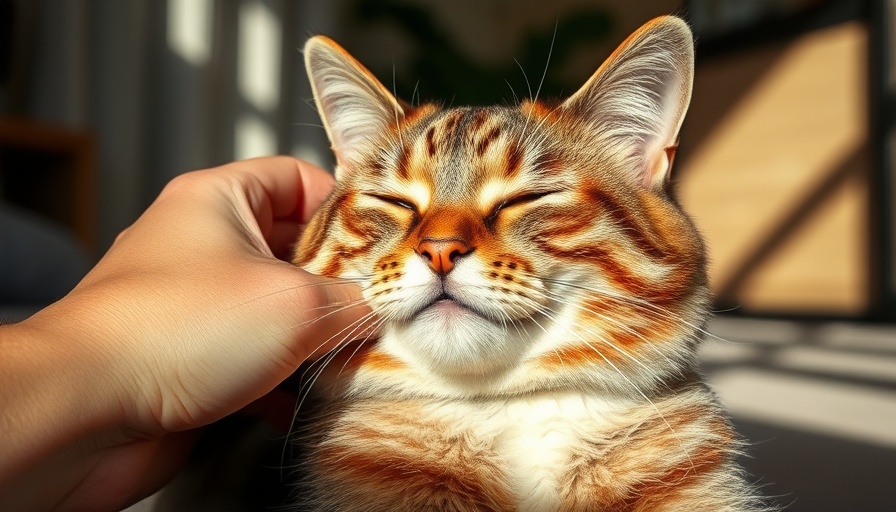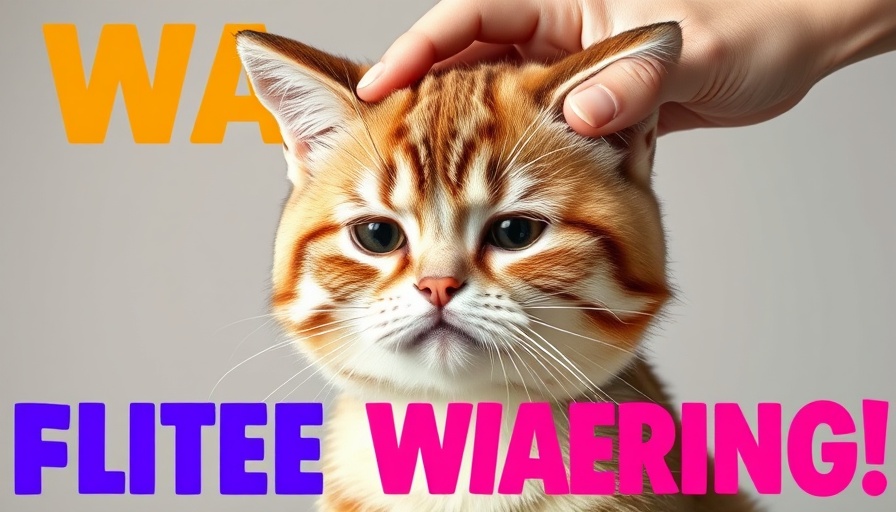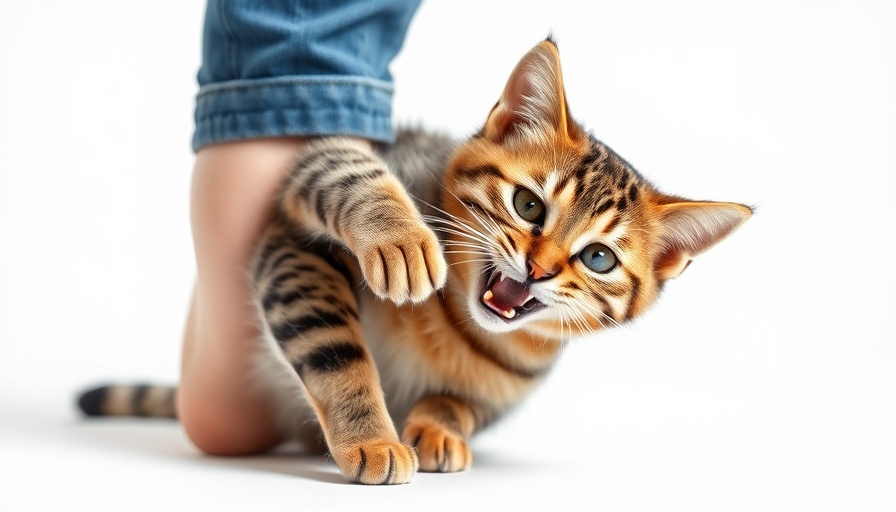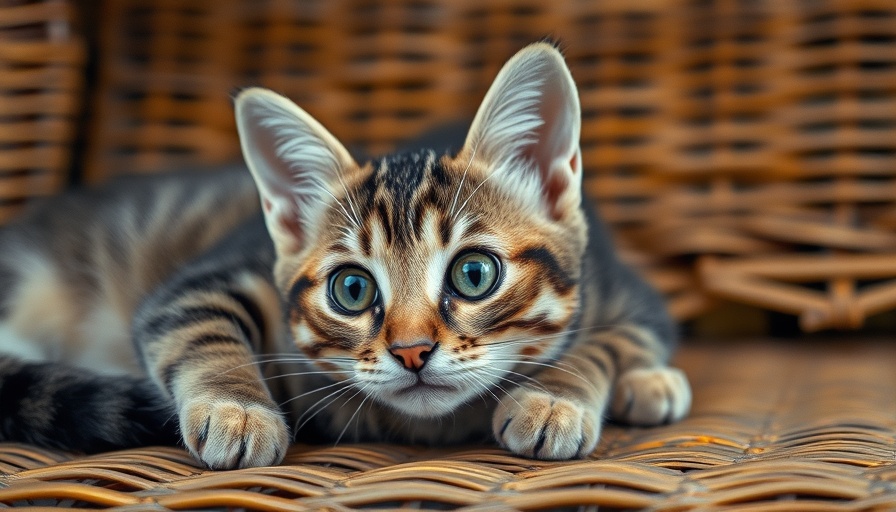
How to Show Your Cat They Are Truly Loved
Have you ever paused to wonder how much your cat understands your love? While we may think our pets don’t require validation beyond food and shelter, the truth is that our feline friends thrive on emotional connection. In this guide, we explore ten powerful yet subtle ways you can ensure your cat feels valued and loved.
In 'If You Do These 10 Things, Your Cat Feels Truly Loved,' the video highlights crucial methods that ensure your feline feels emotionally valued, prompting us to share a broader analysis and insights.
Wake Them Up with Love
The first few moments each morning hold significant weight for your cat. Instead of glancing at your phone upon waking, consider greeting your kitty warmly. This small gesture affirms their importance in your life. When you start your day by acknowledging your cat, you reinforce a bond that sets a positive tone for both of you. Cats remember these moments, feeling seen and cherished right at the outset of their day.
The Emotional Importance of a Lap
When your cat decides to curl up in your lap, it’s not just about seeking warmth. This choice marks an unspoken expression of trust and a desire for connection. As busy pet parents, we often rush through the day, missing these fleeting moments of intimacy. Take a few moments to enjoy this serene bond. The steady rhythm of your heartbeat and the warmth of your body provide reassurance they cherish deeply. Offering a warm lap when they seek it builds a sense of safety and strengthens your bond.
Let Them Choose the Affection
Unlike dogs, cats don't always appreciate affection being thrust upon them. They are creatures of independence, and control is their marker of safety. Allowing your cat to initiate the interaction communicates respect for their boundaries and fosters trust. By waiting for them to approach you for affection, you affirm their autonomy, solidifying a deeper emotional connection. Over time, you'll find your cat seeking out your company willingly, knowing they can freely retreat if they choose.
Respect Their Sacred Napping Spaces
Cats treat their napping spots with reverence. Whether it’s a sunlit patch on the floor or a cozy corner of the couch, these spaces are their sanctuaries. Make an effort to keep them undisturbed, as disruptions can lead to anxiety. By acknowledging and respecting these precious areas, you demonstrate that you understand their personal needs and contribute to their emotional well-being. An emphasis on creating safe, comfortable spots will encourage your cat to feel secure around you.
Use Their Name Like a Song
Every time you speak your cat’s name, you impart emotional significance upon it. Using a warm, gentle tone creates a melody of kindness that resonates with them. When their name is used positively, it becomes a source of comfort and safety. Pairing their name with soft touches, relaxed body language, and positive experiences enriches the bond you share. Your cat may start to respond to their name with excitement, enhancing your communication.
Create a Cozy Sunbathing Spot
Cats basking in sunlight radiate pure joy. By observing where sunlight falls in your home, you can set up cozy lounging spots for your feline to enjoy. Positioning cushions or blankets in these sunny areas transforms an ordinary space into a patch of warmth and bliss. Not only is this a physical luxury, it becomes an emotional space where your cat connects with you in serenity. They’ll come to associate sunny moments with your presence, reinforcing their bond with you.
Grooming as an Act of Love
Many pet owners view grooming as simply a chore, but for cats, it represents a deeply intimate bond. While grooming, channel the gentle, nurturing touch reminiscent of their mother’s licks during kittenhood. Make the experience calming and reassuring; they will begin to associate grooming with love and comfort. With patience, you’ll transform grooming time into a treasure trove of connection where your cat feels adored and secure.
The Power of Purposeful Treats
Treats should be meaningful moments of celebration rather than casual snacks. When given purposefully—like rewarding bravery or good behavior—treats become a language of appreciation. This mindful approach reinforces trust and communicates to your cat that their actions are valued. Whether you celebrate a moment of courage or simply show your affection, intentional treat-giving deepens your personal bond.
Simply Be Present Together
In our busy lives, the simplest act of sitting quietly beside your cat can be a profound gesture of love. Allow your cat to come to you without any expectations of interaction. This peaceful coexistence shows you respect their space while expressing your affection. Over time, you may notice your cat getting closer and more comfortable with your presence. This shared tranquility becomes a way of communicating your love without words, reinforcing a bond that requires no demands.
By implementing these ten tips, you’ll create a nurturing environment where your cat feels wanted and secure—not just as a pet but as a cherished member of your family. Love isn’t always loud; often, it’s the quiet moments of understanding that speak the loudest.
 Add Row
Add Row  Add
Add 




 Add Row
Add Row  Add
Add 


Write A Comment